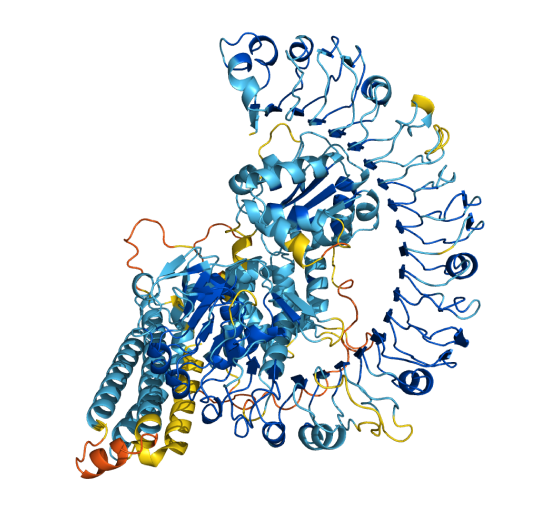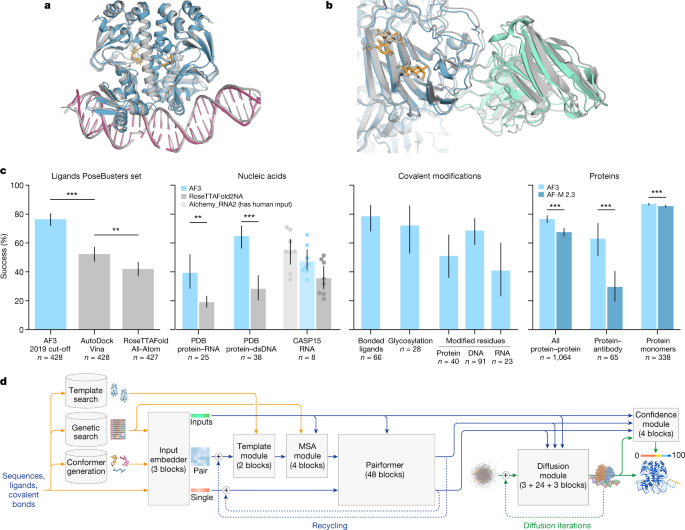AI protein-prediction tool AlphaFold3 is now open source
AlphaFold3, an artificial intelligence (AI) tool developed by DeepMind, is now open source. The tool, which can predict the structures of proteins as they interact with DNA, has been made available for non-commercial applications.

AlphaFold3 Becomes Open Source
After a period of controversy surrounding the withholding of code, Google DeepMind has released the software code for AlphaFold3. This move allows scientists to download the code and utilize the AI tool for a variety of applications.
Enhancements in AlphaFold3
AlphaFold3 represents a major upgrade from its predecessors, as it can model proteins in conjunction with other molecules. Unlike AlphaFold2, which had restricted access through a web server, AlphaFold3 now allows academic scientists to make predictions on protein-drug interactions by running the model themselves.

Initially, DeepMind had limited access to the AlphaFold3 server, citing a balance between research access and commercial interests. However, the decision to release the code has now enabled wider use of the tool for non-commercial purposes.
Competition and Reproducibility
Several companies have unveiled open-source protein structure prediction tools based on AlphaFold3, following its release. While these tools offer new possibilities for research, limitations on commercial applications remain.

Efforts are underway to develop fully open-source models that would allow for broader usage and customization by different entities. The open nature of AlphaFold2 led to significant innovation in the field, with diverse applications emerging from the scientific community.
Future Developments
As the field of biological AI continues to expand, discussions around publishing norms and transparency are becoming increasingly important. The release of AlphaFold3 and its subsequent replications underscore the significance of reproducibility and open access in scientific research.

Looking ahead, the scientific community anticipates further advancements and unexpected discoveries resulting from the widespread availability of AI tools like AlphaFold3. The potential for collaboration and innovation in protein prediction and drug discovery is vast, offering new opportunities for researchers worldwide.




















